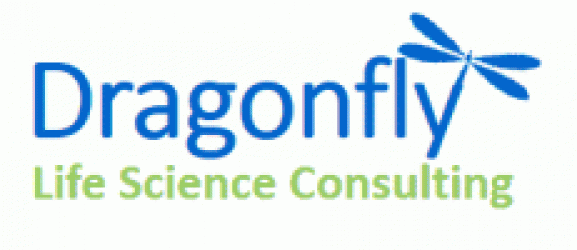by Lilac Bullock
Republished from Forbes, December 3, 2018
It’s almost the end of the year, the perfect time to look back at what you’ve done and achieved, as well as look forward to understand what’s to come.
The world of sales has been rapidly changing in the last few years as new technology evolved and became more accessible to businesses and sales teams across niches. The question is, what will 2019 bring to the table? What will be the biggest trends in sales happening in 2019?
In this blog post, I’m going to talk about 4 sales trends that you need to know about in 2019.
1. Selling to the new generation: Generation Z

Millennials used to be the “new” generation that marketers and sales people needed to start focusing on – and while millennials are definitely increasing in terms of buying power, there is a new generation emerging that both marketers and sales people need to be aware of:
Generation Z.
This generation is formed of those born anywhere from the mid-90’s to the mid-2000’s so the oldest in their early 20s while the youngest are just barely teenagers right now. Of course, the bigger focus should be on the older of the Generation Z who are gaining more and more buying power. Currently, Gen Z account for approximately $29 – $143 billion in direct spending, and they are well on their way to becoming the biggest generation of consumers by 2020, which is right around the corner.
So, how does this affect sales? Well, this generation is quite different from previous generations, at least in some respect. For example, they were born with access to incredible technology and grew up using social media, smartphones, online shopping and all kinds of other technologies on a daily basis. They also care a lot about worldwide issues and their own impact on the world, particularly when it comes to environmental issues.
Plus, there’s one very interesting statistic that might surprise many people: some studies show that Generation Z actually prefers brick-and-mortar stores to online shopping (57% said they prefer online shopping).
How do you sell to this generation though?
The secret stands in understanding who forms this generation and what they care about – the more you learn about them, the easier it will be to come up with the best approach to sell to them.
2. A more strategic approach to sales enablement
One way or another, every sales team gets at least little bit of sales enablement, whether it’s the software they get to help them sell more efficiently or occasional training sessions. That said, there’s certainly been a lot of growth in this area in the past couple of years, with more and more businesses and organizations implementing sales enablement strategies, a trend which is very likely to continue in the coming year.
But, what’s more, there will also be a more strategic approach to sales enablement:
- An actual strategy and plan with clear objectives and certain steps to be taken
- A bigger focus on helping sales people develop their top skills and become better at their job
- An easier way to onboard new sales people and help them jump right into selling
- More focus on new technology that can aid the sales enablement process as well as individual sales people to sell more
How do you stay on top of this trend?
In order to stay of this trend, take the time to really plan out a sales enablement strategy, from helping to onboard new sales people as efficiently as possible to consistent coaching to your existing sales people.
Make use of technology like MindTickle to implement your strategy, as well as to leverage data as part of your sales enablement strategy. You’ll be able to create onboarding and coaching programs, simulated sales scenarios to help develop your sales people’s skills, plus you have access to Artificial Intelligence to help you maximize your efficiency and results and access to in-depth analytics to help you discover any knowledge or skill gaps that need your attention.
3. Machine learning, deep learning, artificial intelligence and sales

Artificial Intelligence has the power to disrupt entire industries – and sales is no exception. For example, I already showed you how AI can help with sales enablement and coaching. There are definitely a lot of ways that AI will continue to impact the world of sales in 2019, though.
The more you can implement Artificial Intelligence into the tools you use to sell, as well as into your day to day strategy, the bigger the impact on your productivity will be.
Here are the main ways that AI can help salespeople be more productive:
- The ability to analyse huge amounts of data in a very short time will help you personalize your sales strategy
- Get recommendations based on massive amounts of data, thus saving time with following up and reaching out to the right people
- Predict the future – with access to so much data, plus the ability to analyse this data, comes a great power: the ability to predict the future. What will your next quarter look like based on your past work? What can you do to improve the results of your next quarter?
How can you leverage Artificial Intelligence?
AI is fortunately becoming more and more accessible by the minute. While the more complex systems might be out of range for the regular business, plenty of “regular” sales tools are implementing more AI-based features, such as CRM tools and prospecting tools.
If you want to also learn about your leads and prospects as well as accurately analyse your data, you can use tools like MissingLink to automate deep learning.
4. Moving towards the omni-channel experience
Earlier, I talked about Generation Z – the new generation of buyers that is rapidly gaining a huge buying power in the market.
One of the things that these younger generation expect more and more is an integrated experience across all of a business’s channels. The new generations use various devices at any given moment, they research products and services online extensively before they buy and they often demand personalized experiences that flow seamlessly from channel to channel.
This trend towards omni-channel marketing and creating omni-channel experiences has a huge impact on sales. Most importantly when it comes to the relationship between a sales department and a marketing department. While these departments are (historically) quite clearly separate, the move towards omni-channel marketing demands a much closer relationship between the 2.
How do you create more omni-channel experiences from a sales point of view?
There is a lot that needs to be done in order to develop a true omni-channel experience for all of your customers:
- Identifying all the platforms and channels your audience uses and leveraging them
- Creating a seamless transition between all channels and platforms that audiences have access to (for example, if a lead starts a conversation via text messages while they’re on the bus or train but then want to change the channel once they get home, then they should be able to do as seamlessly as possible, without wasting any time)
- Finding ways to integrate technology such as social media into bricks-and-mortar stores
From a sales point of view, the most important thing is to collaborate with the marketing department. It’s not just a case of marketers updating sales people on progress or sending them leads occasionally, but rather a truly close relationship where the 2 parties actually collaborate, as sales and marketing are more intertwined than ever.
Conclusion
In order to improve productivity and overall sales, it’s important to stay on top of trends and implement new technologies and new tactics, such as:
- Learning how to sell to Generation Z
- Implementing a sales enablement strategy to help your sales team be more productive
- Leveraging new technology like AI and machine learning to improve sales and knowledge
- Integrating marketing and sales and developing more omni-channel experiences for your audience
What sales trends are you most excited about?
